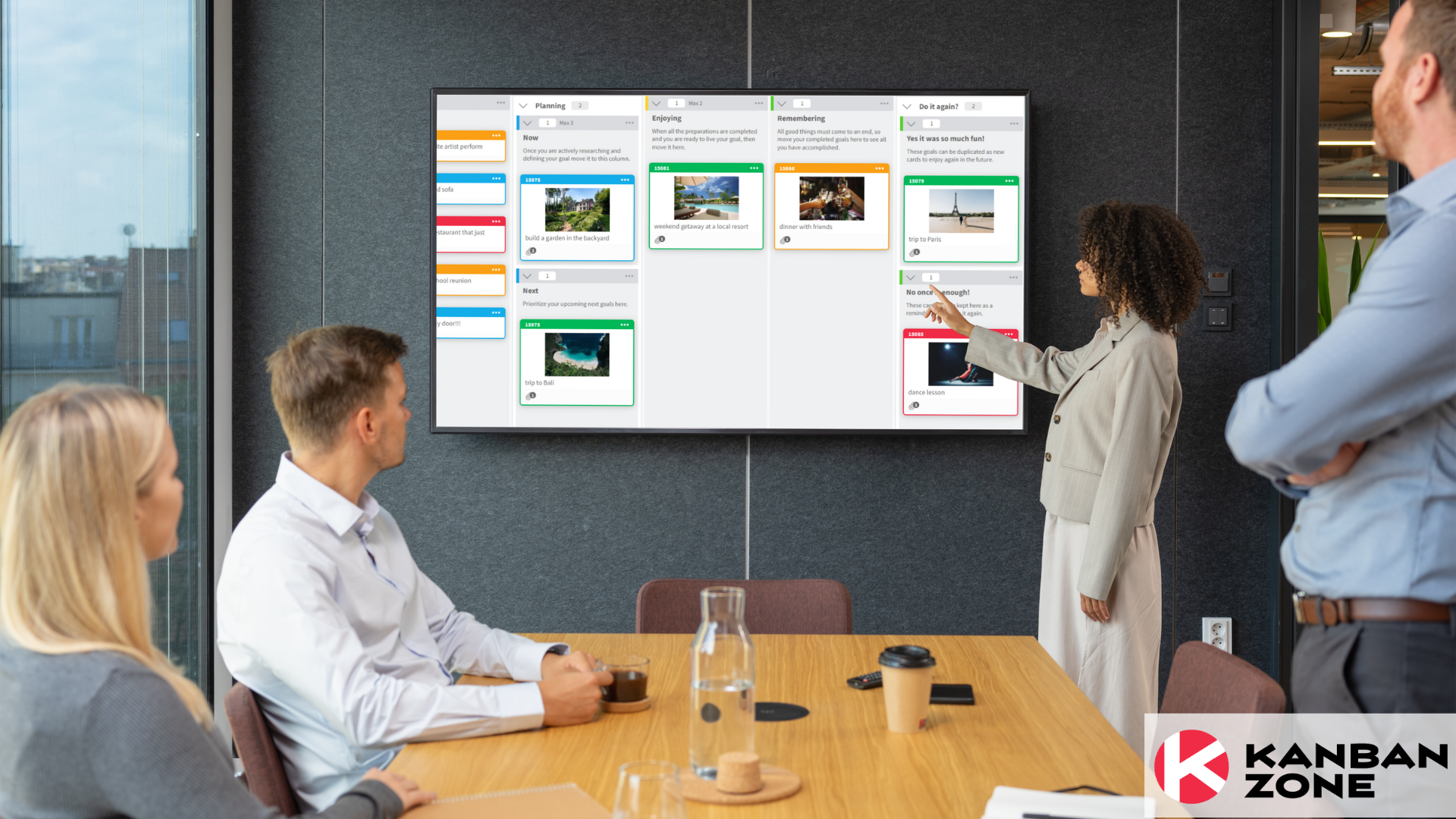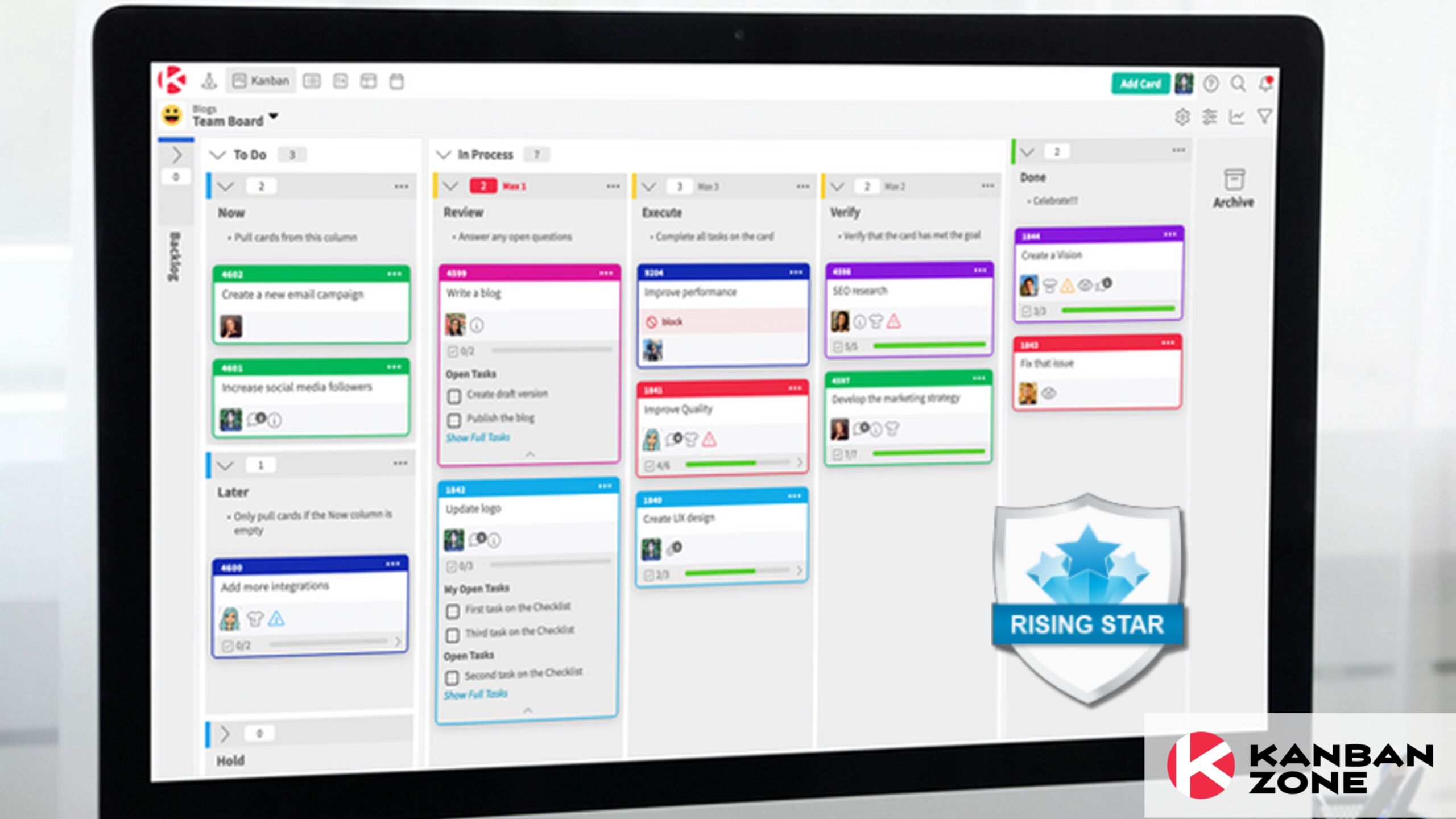
For 78 years, Clark and Enersen has carried on with its mission of creating excellent designs through multi-discipline collaboration and strong partnerships with its clients. The firm comprises 190+ design professionals in architecture, interior design, landscape architecture, planning, and civil, mechanical, electrical, and structural engineering.
They added a Digital Experience Design team in 2022. That team is working on the low voltage systems design on more than 50 projects. To manage their work from various locations across the United States, having no proper and unified platform to keep track of all progress made project management a challenge.
This is where Kanban comes in. As a well-known visual project management system used by some of the biggest businesses in the world, Kanban is a time-tested method of managing projects more efficiently. In this article, we share how Kanban Zone has helped Craig Park, Associate Principal and Director of Digital Experience Design for Clark & Enersen create a better workflow to manage multiple projects.
Optimizing Efficiency through Kanban Zone
In an interview with Marina Alex, Kanban Zone’s Chief Marketing Director, Park shared how he has been championing the use of Kanban as a project management tool for the firm. “I am on our workflow committee where we are studying how we could do this better. And while we do it well, we’re profitable and happy. We have a very good culture, and everybody enjoys working with each other.”
He also expressed his frustrations about aligning the workflow of any individual whose tasks have to happen within their discipline and then cross-discipline. He further shares his experience in using Kanban Zone and how it has helped him organize his projects in the firm.
According to Park, “When I first started working with Kanban Zone, I built a portfolio board of all of our DXD team’s projects. As the projects move along, they move into each of the phases. And I use this to keep my senior management team informed about the amount of work we’re doing in our discipline and where it is in the phases.”
Mr. Park also talked about Kanban Zone’s mirror card feature. “I use mirroring to allow both those boards to stay up to date with the kinds of projects we’re working on. For each project or each building, you have a board and basically, you have all the information. Everybody’s aware.”
Championing Kanban for Architecture and Engineering
Being an experienced project manager, Park believes in Kanban’s power when handling projects more efficiently. He also shared his experience using different software. “So our scheduling software gives me upcoming milestones. But this doesn’t help me very much. It doesn’t give me a good visual cue of where anything is. I’ve got to dig to get to data.”
“That’s why I have been saying that I believe architecture and engineering could benefit from using Kanban as a tool to create cloud-based visual access to the dashboards of all the projects and then be able to drill down by discipline.”
He explains further that the reason why he builds multi-discipline boards is to demonstrate how Kanban could work for all of their other disciplines in the firm. Craig Park adds, “Portfolio boards are really handy as a way to drill down quickly to see all the disciplines, where they are, and what their milestones are in one place.”
The Journey Towards Agile and Kanban
Park talked about how he started his Agile practice when he used to handle marketing and sales for a different firm. “We had three or four primary disciplines. People were spread out all over the country and most of us were working virtually. I was looking for ways that we could consolidate information in a way that everyone could be aware of upcoming work in our marketing department and what workflows were coming.”
This was when Mr. Park started looking at Kanban to streamline the marketing deliverables. This gave their team more time to do proactive marketing through social media and conducting expert interviews.
Now that he is a part of Clark & Enersen, Park has utilized Kanban Zone to keep track of his team’s projects. “My first priority is to get the work done and less about managing the workflow and it still continues to help me see it. Every time I get a new project, it goes on the board.”
He also expressed his eagerness to help improve the project management process in the firm as a whole. “As an old line project manager, I always look for ways to create routines and then iterate those to make them better over time using Lean models, so that we’re all working in the same platform. It allows us to share work more easily when we do that.”
Mr. Park also shares how he is advocating the use of Kanban by introducing it within his team. “We have a workflow committee and are moving in a way that will get us toward a more common approach to project management.”
He adds, “I always believe in leading by example and if you can take, as I’m trying to do in our firm, a small subsection of the practice and refine the management processes using the contemporary tools, Agile Kanban as the example, and demonstrate that this group is communicating better, doing their work more efficiently, improving our quality of life.”
Resolving Efficiency and Communication Problems with Kanban
When asked about the top three challenges that Craig Park wanted to resolve in their organization through Kanban, he enumerated the following:
- Communicating the workflow process. Park wanted a tool that allowed him and his team to understand where they were on certain projects from beginning to end.
- Managing time and deliverable expectations. Their team wanted a tool that provides a template of standard steps so his team would know what their deliverables are and how much time is allotted to accomplish them.
- Using a tool that helps free up more time. Park needed a project management tool that would not eat up most of his time, but would instead help him have more time to handle more creative work.
When asked about the features of Kanban Zone that he liked, he shared his top 5 favorites:
1. Customizable boards. “Kanban Zone was so customizable. It was easy for me to move things around.”
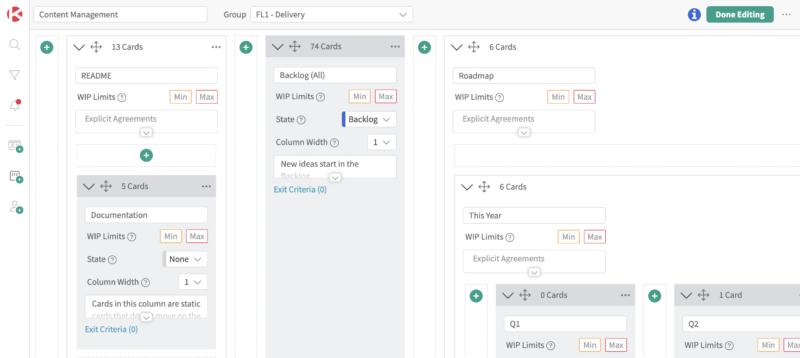
Kanban Zone's Board Designer feature makes it easy for users to create custom kanban boards that suit their needs.
2. Checklists under each task card. “The fact that I can go down to an individual task and easily provide the checklists with descriptors. I can put in a deadline. That part made it easy for each of the subsections of work to be well defined.”
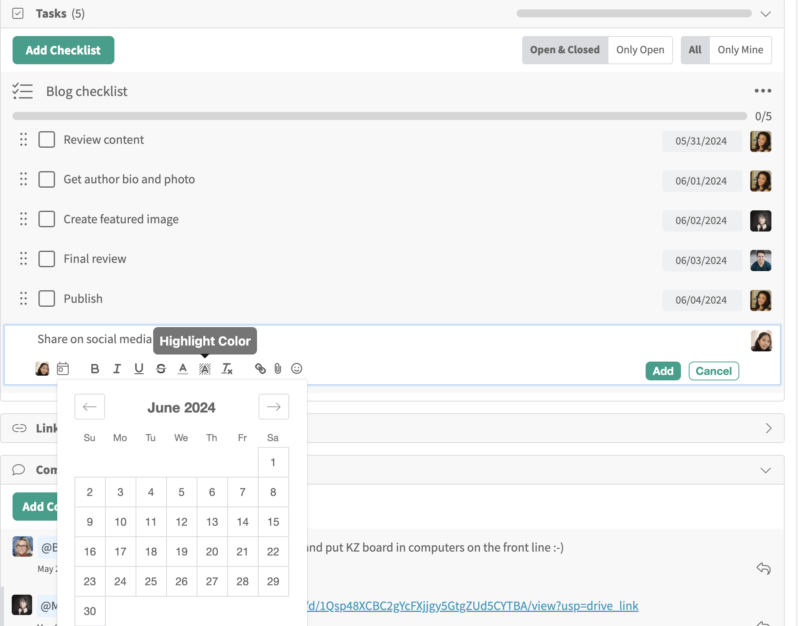
With the Add Checklist feature, you can add a checklist of tasks and assign them to your team members, with a corresponding due date and other customizations.
3. Custom fields. Park liked that he could create a lot of custom fields.
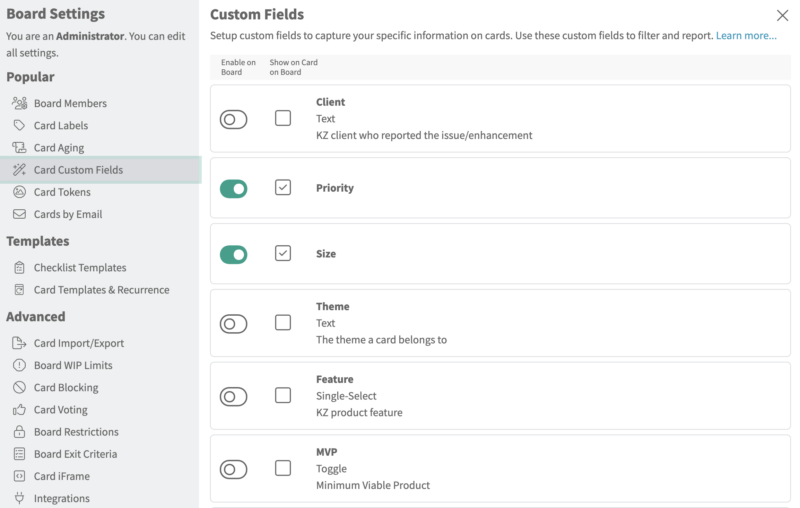
Need your Kanban cards to display additional information and following a specific input format? You can easily add new fields with the Custom Fields feature on Kanban Zone
4. Mirror cards. “Mirroring is my favorite. The big aha moment was I only had to do it once and then I could mirror it in several places.”
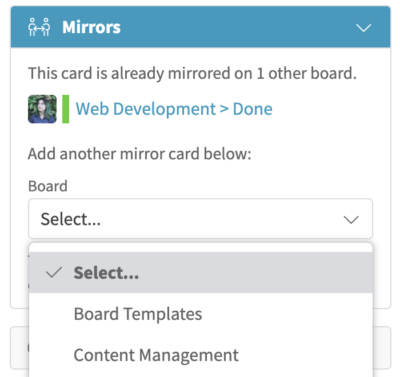
No need to manually create a new card for the same task and for the same people across multiple boards. You can easily mirror them in a matter of seconds.
5. Kanban Metrics. “I can look at the total time spent, the cycle time, what’s in progress, what’s to do, what the backlog looks like. It’s simple and quick.”
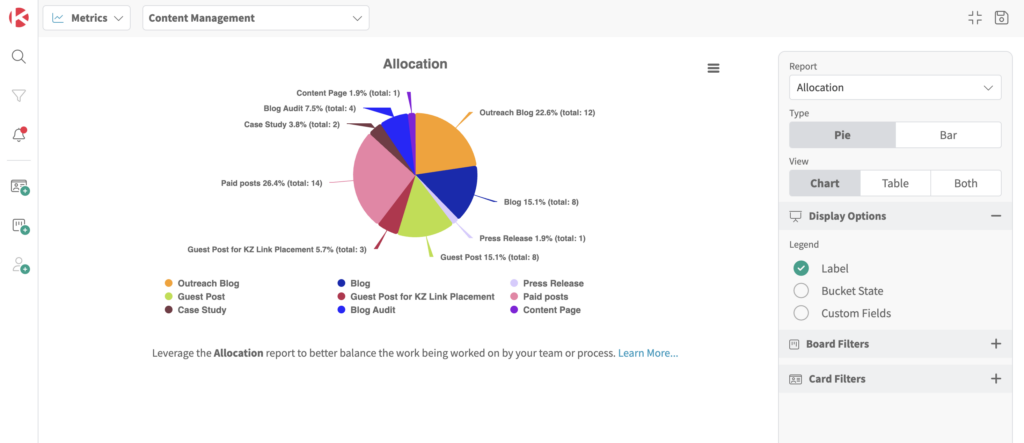
Need to create a report on your team's productivity? If your team tracks all project and tasks on Kanban Zone, you can easily get reports through the Metrics feature.
Read more about how Craig Park and his team at Clark & Enersen utilized Kanban Zone to improve their workflow, collaboration, and efficiency in our recent use case: Using Kanban in Architecture, Design, and Engineering.
To find out how your organization can also take advantage of the power of Kanban using Kanban Zone, book a consultation with one of our experts.
Learn to Work Smarter, Not Harder!
Get our top articles weekly.
Table Of Contents
Discover many more posts…


